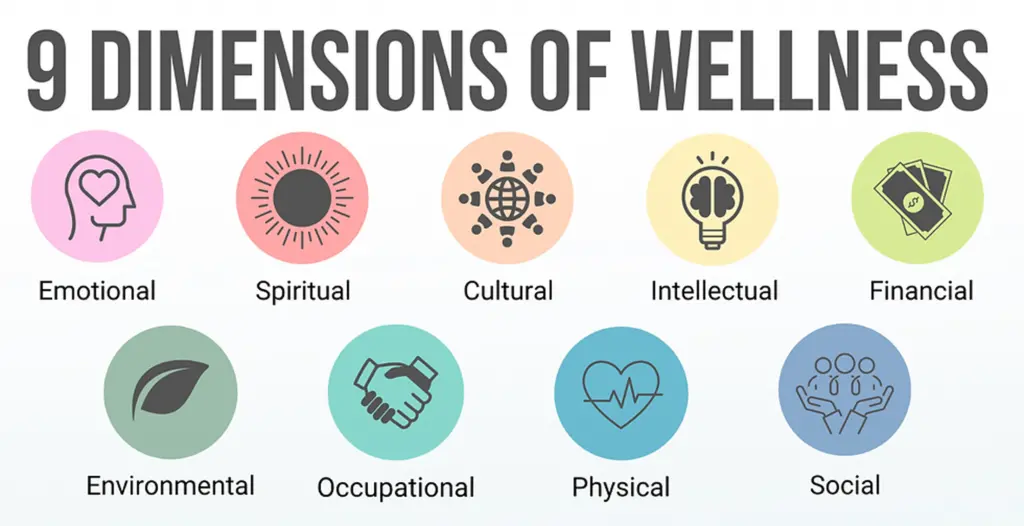
What Is Holistic Health?
Holistic health is a philosophy and practice that considers the whole person — including physical, mental, emotional, social, and spiritual dimensions — when addressing health and wellness. Instead of isolating illnesses or symptoms, it looks at the root causes and interconnectedness of various factors affecting a person’s health.
Core Components of Holistic Health
| Component | Description | Examples of Practices |
|---|---|---|
| Physical Health | Taking care of the body through exercise, nutrition, and rest | Balanced diet, regular exercise, adequate sleep |
| Mental Health | Managing stress, emotions, and cognitive function | Meditation, therapy, mindfulness |
| Emotional Health | Understanding and expressing feelings in a healthy way | Journaling, emotional release techniques |
| Social Health | Building meaningful relationships and social support | Community involvement, healthy communication |
| Spiritual Health | Finding purpose, meaning, and connection beyond oneself | Yoga, prayer, nature walks |
Benefits of Holistic Health
1. Improved Physical Wellness
By focusing on nutrition, exercise, and preventive care, holistic health helps strengthen the immune system and reduce chronic disease risks.
2. Enhanced Mental Clarity and Emotional Balance
Practices like mindfulness and therapy aid in managing anxiety, depression, and stress, promoting a calm and focused mind.
3. Stronger Relationships and Support Networks
Social well-being fosters a sense of belonging and reduces feelings of loneliness, which is crucial for overall health.
4. Greater Spiritual Fulfillment
Connecting with your inner self or a higher purpose brings peace, motivation, and resilience.
Holistic Health Practices to Incorporate
Nutrition and Diet
Eating whole, unprocessed foods rich in vitamins and minerals supports all aspects of health. Consider adding more fruits, vegetables, whole grains, and lean proteins to your meals.
Regular Physical Activity
Aim for at least 150 minutes of moderate exercise weekly, including cardio, strength training, and flexibility exercises like yoga or Pilates.
Mindfulness and Meditation
Daily meditation or deep-breathing exercises can reduce stress hormones, improve concentration, and promote emotional balance.
Adequate Sleep
Prioritize 7-9 hours of quality sleep per night to support bodily repair, memory consolidation, and mood regulation.
Social Connections
Spend time nurturing relationships, join clubs, volunteer, or attend social gatherings to enhance social health.
Spiritual Exploration
Engage in activities that give you a sense of purpose, such as journaling, nature walks, religious practices, or creative hobbies.
Holistic Health vs. Conventional Medicine: What’s the Difference?
| Aspect | Holistic Health | Conventional Medicine |
|---|---|---|
| Focus | Whole person, root causes | Specific symptoms or diseases |
| Treatment Approach | Natural therapies, lifestyle changes | Medication, surgery, acute care |
| Practitioner Role | Collaborative, preventive, patient-centered | Diagnostic, treatment-focused |
| Timeframe | Long-term wellness and prevention | Short-term symptom relief |
How to Start Your Holistic Health Journey
- Assess Your Current Health: Take note of physical, mental, and emotional well-being.
- Set Realistic Goals: Focus on one or two areas at a time, such as improving sleep or reducing stress.
- Seek Support: Consult with holistic health practitioners or join wellness communities.
- Incorporate Small Changes: Gradually adopt healthier habits like drinking more water or practicing daily meditation.
- Monitor Progress: Reflect regularly on your improvements and adjust your routine as needed.
Conclusion: Embrace Holistic Health for Lasting Well-being
Adopting a holistic health approach empowers you to take control of your overall well-being by addressing all aspects of your life. By nurturing your body, mind, emotions, social connections, and spirit, you create a balanced and fulfilling lifestyle. Start small, stay consistent, and watch your health transform in meaningful ways.



